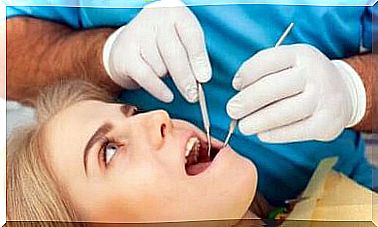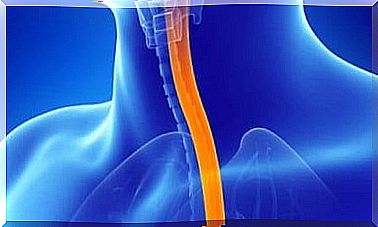Moebius Syndrome: What It Is, As Well As Symptoms And Treatment

Moebius syndrome is a rare and atypical pathology. Today, however, more and more cases are reported. It is discussed at meetings of neurologists and ophthalmologists around the world.
It can be concluded that the main symptom of Moebius syndrome is the loss of the ability to smile, although affected people experience happiness and would like to express it but are unable to.
But that’s not all. Patients with this rare condition do not have normal facial expressions. For example, it is difficult for them to move their eyes sideways.
This is because they have not fully developed two pairs of cranial nerves – pair number six and seven. These nerves are responsible for the movement of the mimic muscles and the eyeballs.
Each pair of cranial nerves has specific functions that we will describe later. Nerve number six is responsible for the lateral movement of the eyeballs, and nerve number seven is called the “facial nerve” because it is responsible for facial expression.
We know that Moebius syndrome occurs in isolation. It is therefore not hereditary. It is estimated that one person in one hundred and twenty thousand suffers from this problem.
Cranial nerves
Let’s first look at the pairs of cranial nerves and their functions to understand why Moebius syndrome produces specific symptoms. The following cranial nerves are distinguished:
- Visual: Responsible for seeing.
- Tripartite: is involved in chewing.
- Facial: responsible for facial expressions.
- Olfactory: carries information related to olfactory stimuli.
- Sublingual: innervates the tongue and neck.
- Auditory : sends auditory stimuli to the brain.
- Lingual and pharyngeal: responsible for taste.
- Compound: guides eye movements.
- Abducting: he is handicapped by Moebius syndrome.
- Wrong: reaches the chest and abdomen.
- Additional: reaches the neck and back.
- Oculomotor: responsible for eye movements.
Etiology
It is worth explaining that this condition is not really a syndrome. Moebius is a so-called genetic sequence. There are changes in the sequences due to the anomaly.
In the case of Moebius, the anomaly is the underdevelopment or absence of cranial nerves number six and seven. Imaging studies on patients’ corpses confirm the diagnosis.
The reason is not always in the genes. There are known cases where the problem with the cranial nerves is caused by drug treatment. Misoprostol is a drug that causes these types of ailments, according to a group of researchers at the University of Barranquilla in Colombia.
This drug is used to terminate pregnancy. However, if it is not effective, it can cause Moebius syndrome in your baby.

Moebius syndrome and its symptoms
Newborns with Moebius syndrome not only lack facial expressions, but also find it difficult to breathe. They babble excessively and their muscle tone is weak, which affects walking.
If you add the probability that patients with this problem often suffer from foot deformities, there is a significant risk of delay in development. Other additional symptoms include:
- Cleavage of the palate.
- No eyelids.
- Hypersensitivity to the sun and strong light.
- Hearing problems due to fluid build-up in the inner and middle ear.
Experimental treatment
There is no cure for Moebius syndrome. It is therefore irreversible. Rehabilitation sessions are not effective.
There is, however, an experimental surgical treatment initiated in Canada. It consists in implanting a muscle that allows smiling.

It is estimated that the procedure is most successful when it is performed on a patient around the age of 5. While the practice is promising, it is not available worldwide and is costly.
Families of Moebius patients have to oppose discrimination. Therefore, it is necessary to raise public awareness and emphasize that patients with this problem have feelings, although they are unable to express them.
New forms of treatment are being tried in the medical community. Surgical projects are promising. It is necessary to provide patients with respect and take them into account in social life, and to make the society aware of the Moebius syndrome.









